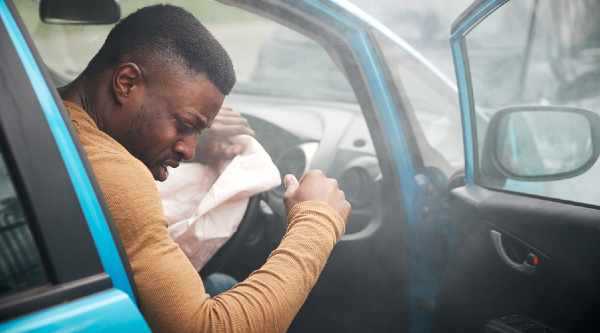Car accidents are traumatic events that can leave a lasting impact on the lives of those involved. While physical injuries are often immediately evident, there is a hidden aspect that can linger long after the physical wounds have healed. Post-Traumatic Stress Disorder (PTSD) is a psychological condition that can develop in the aftermath of a car accident.
Understanding PTSD
According to the American Psychiatric Association, “Posttraumatic stress disorder (PTSD) is a psychiatric disorder that may occur in people who have experienced or witnessed a traumatic event, series of events or set of circumstances.” Car accidents can be particularly distressing, as they involve sudden and often life-threatening situations.
Individuals with PTSD may experience flashbacks, nightmares, intrusive thoughts and intense emotional reactions related to the accident. Symptoms of PTSD can significantly impact daily life, relationships and overall well-being.
Signs and Symptoms of PTSD
Not every case of PTSD is the same. “It is not uncommon for people to develop PTSD after a car accident,” note accident lawyers at Manchin Injury Law Group, “PTSD symptoms can also grow over time and not directly after an accident.”
Re-Experiencing
Individuals with PTSD may repeatedly re-experience the car accident through distressing memories, flashbacks, or nightmares. Car accident survivors might feel as if they are reliving the traumatic event, leading to heightened anxiety and emotional distress.
Avoidance
People experiencing PTSD may avoid situations, people, or places that remind them of the accident. Avoiding driving or even getting into a car altogether may be a common occurrence. They may also withdraw from social activities and isolate themselves from friends and family.
Hyperarousal
Hyperarousal symptoms include irritability, difficulty concentrating, sleep disturbances, exaggerated startle response, and hypervigilance. Individuals may be constantly on edge, anticipating danger or another accident.
Emotional Changes
PTSD can cause significant changes in emotions and mood. Feelings of guilt, shame, anger, fear, or a sense of detachment from others may manifest. Emotional numbness and a loss of interest in previously enjoyed activities are also common.
Coping Strategies for PTSD
Seek Professional Help
If you suspect you have PTSD after a car accident, it is essential to seek professional help. Mental health professionals, such as therapists or psychologists, can provide effective treatments like cognitive-behavioral therapy (CBT) or eye movement desensitization and reprocessing (EMDR), which can help process and manage traumatic memories.
Build a Support System
Surround yourself with a supportive network of friends, family, or support groups who can provide empathy, understanding, and a listening ear. Sharing your experience with others who have gone through similar situations can be incredibly healing.
Practice Self-Care
Engage in activities that promote relaxation, stress reduction, and emotional well-being. Activities can include exercise, mindfulness and meditation, journaling, engaging in hobbies and maintaining a healthy lifestyle.
Gradual Exposure
Gradually exposing yourself to driving or car-related activities can help desensitize the anxiety and fear associated with the accident. Start with short drives in familiar areas and gradually increase the distance or exposure to challenging situations.
Educate Yourself
Learning about PTSD and its impact can provide a sense of validation and understanding. Recognize that what you are experiencing is a normal response to an abnormal event. Education can also empower you to advocate for your needs and seek appropriate treatment.
Healing Physically and Emotionally After a Crash
PTSD after a car accident is a real and significant challenge that car accident victims may face. It is important to recognize the signs and symptoms and seek help when needed.
With the right support and treatment, recovery from PTSD is possible. Remember to be patient with yourself, practice self-care and reach out for professional assistance. Healing from the invisible scars of a car accident is a journey, but one that can lead to a renewed sense of strength and resilience.

